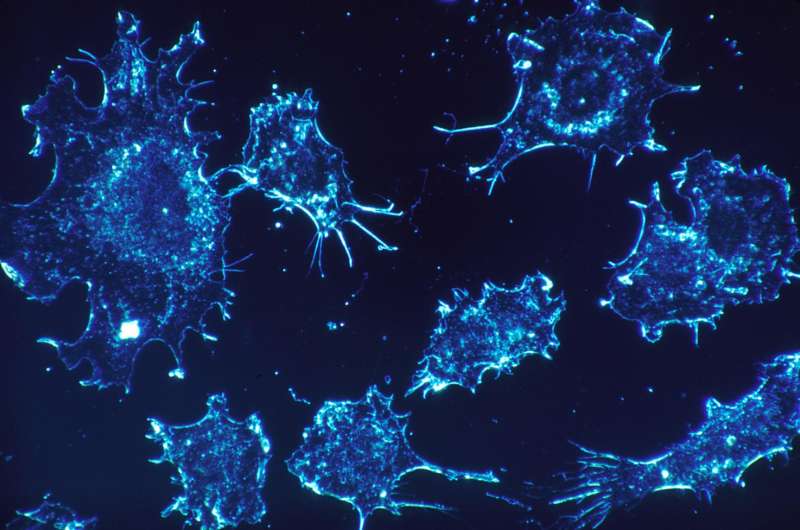Study finds protein aggregation inhibitor can be used to develop cancer therapies

A new study by an international team of researchers, led by NYU Abu Dhabi Associate Professor of Biology Mazin Magzoub, provides important insights into the p53 protein, a critical tumor suppressor often mutated and deactivated in cancer, and a key target in the development of cancer therapeutics.
The Magzoub Lab at NYUAD, in collaboration with Professor and NYU President Andrew Hamilton's lab at NYU New York and Assistant Professor Sunil Kumar's lab at the University of Denver, previously reported the use of small molecule protein mimetics to effectively prevent aggregation of proteins associated with Alzheimer's disease and type II diabetes. In this new study, the team has extended their protein mimetic-based approach and specifically applied it to cancer-associated aggregation of mutant or altered forms of p53.
In the paper titled "Proteinmimetic amyloid inhibitor potently abrogates cancer-associated mutant p53 aggregation and restores tumor suppressor function," published in the journal Nature Communications, the researchers present the process of using protein mimetics to reactivate p53.
The team first screened a library of protein mimetics originally designed to target Alzheimer's disease and type II diabetes. The screen identified a protein mimetic that potently dissociates mutant p53 aggregates and prevents further aggregation of the protein. The researchers then demonstrated that dissociation of mutant p53 aggregates by the protein mimetic restores p53's tumor suppressor function, leading to the death of a wide range of cancer cells. Importantly, treatment with the protein mimetic effectively shrinks tumors that harbor mutant p53, while exhibiting no noticeable toxicity to healthy tissue, thereby substantially prolonging survival.
"With the increasing incidence of cancer worldwide, there is a pressing need for new cancer treatments to supplement or supplant the current ones," said Mazin Magzoub. "Here, we have demonstrated the first successful application of a bona fide small-molecule amyloid inhibitor as an anticancer agent. We believe this work will have a broad impact as it effectively establishes a bridge between amyloid diseases and cancer, providing a foundation for cross-informational approaches in the design of new and potent mutant p53-targeted cancer therapeutics."
More information: L. Palanikumar et al, Protein mimetic amyloid inhibitor potently abrogates cancer-associated mutant p53 aggregation and restores tumor suppressor function, Nature Communications (2021). DOI: 10.1038/s41467-021-23985-1


















